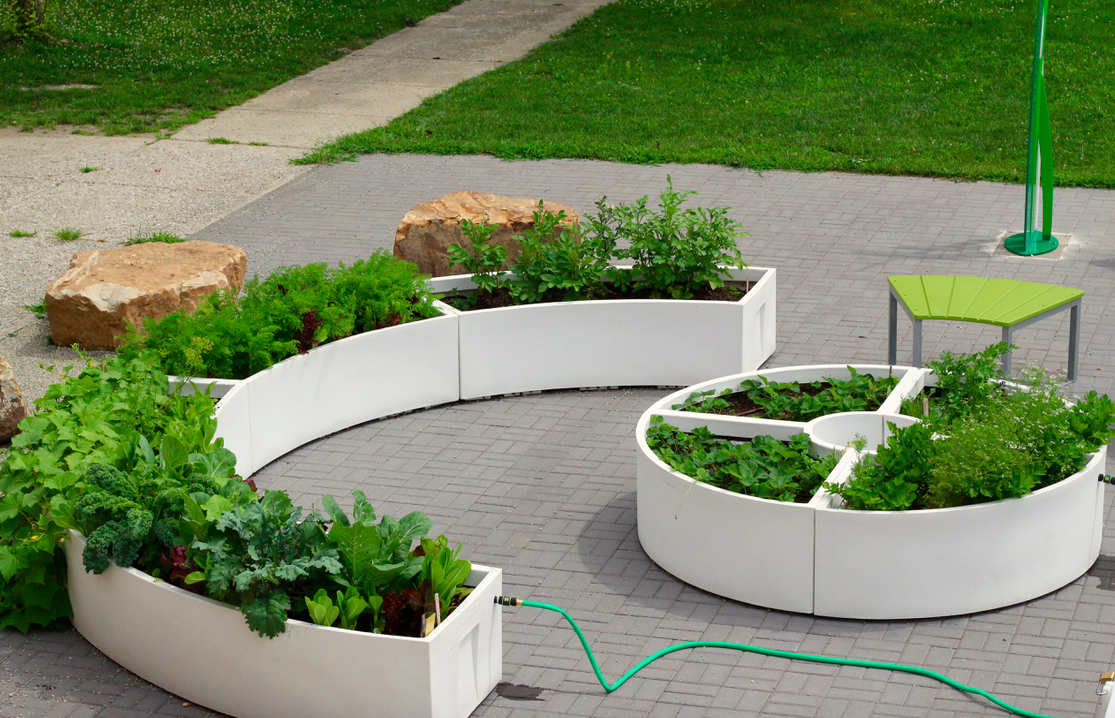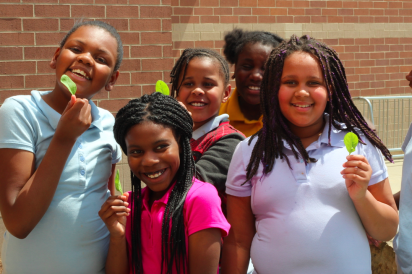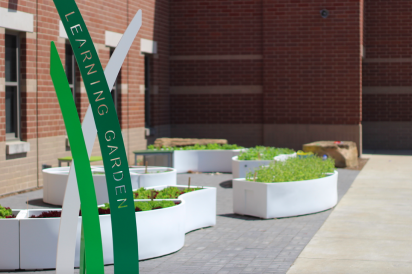Digging in the Dirt Helps Kids Develop Healthy Habits
Big Green Indianapolis, formerly The Kitchen Community, is on a mission to strengthen communities by accelerating the real-food movement. One of the ways they’re doing this, is by introducing Learning Gardens to local schools. The actual gardens are modular, raised beds standing 19 inches tall so kids are eyelevel with the plants growing in the edible gardens. Established in underserved schools throughout the U.S., Indianapolis is the sixth city to launch the program.
Edible Indy: What is a Learning Garden?
Theresa Vernon, Regional Director Big Green Indianapolis: Learning Gardens are outdoor classrooms where teachers inspire students to engage in creative learning. Our mission is to connect children to real food---food that nourishes the body, nourishes the producer, and nourishes the planet---encouraging them to make healthier food choices. There's no better way to do that than hands-on learning in a Learning Garden. Gardening can help kids burn off extra energy and control their impulses, develop strong immune systems and willing to consume more fruits and vegetables.
EI: When and where did the Learning Garden program start?
VERNON: We started in Boulder, CO, in 2011 and have programs in Los Angeles, Chicago, Memphis, and Pittsburg. Our goal for Indy is to build 100 Learning Gardens throughout the city by 2020.
EI: Are there any gardens "up and running" here yet?
VERNON: Since November we’ve built 20 Learning Gardens in the IPS and Beech Grove City districts and have 10 slated for fall, all in the Metropolitan School District of Warren and Metropolitan School District of Wayne.
EI: And how’s the support been?
VERNON: Support to launch in Indianapolis was overwhelming—from Mayor Hogsett's office to the school districts and the city’s philanthropic community. The Herbert Simon Family Foundation pledged to match dollar for dollar any funds brought in to help us reach our 2020 goal.
EI: Wow. That’s amazing! What about the schools? What’s their response?
VERNON: Here’s what the schools are saying:
“Hopefully the idea of a Learning Garden and outdoor growing and outdoor learning will just become the norm for so many of our elementary schools here in the city,” Cold Springs School Assistant Principal Tom Hakim said. “It could have a potentially a huge impact.”
Stacy Coleman, principal at William McKinley School 39 says, “The Learning Garden is a godsend for our pre-kindergarten through sixth-grade students. Roughly 85 percent qualify to receive free or reduced-price lunch and many don't have access to fresh food at home.”
“Our students, staff and families are loving the garden and would be happy to have you come by to take a look and discuss how we use it,” said Mariama Carson principal at Global Prep Academy at Riverside 44.
Want to start a Learning Garden of your own? Read on to learn more about Big Green Indianapolis
How much does a Learning Garden cost for my school?
BGI strives to privately fundraise in support for the Learning Garden Initiative across the country. In order to support our efforts, and ensure that we have the full support of the district and the school, we ask that each district offer a small financial commitment. Following installation of the Learning Garden, BGI provides an array of programming and resources to the school.
How do I use a Learning Garden?
Learning Gardens are inviting outdoor classrooms where teachers can teach and get inspired and students can engage in creative learning. In addition to teaching and growing food in the garden, teachers are invited to explore unique and creative teaching opportunities in the Learning Garden. BGI provides schools with ongoing support to ensure that the school community is able to fully benefit from the Learning Garden. We are committed to providing teachers with training so that they feel confident and effective at using the space as an outdoor classroom.
Who provides curriculum?
BGI works with national partners to design content for our Education Pathway. Our core curriculum serves as a resource for teachers to utilize in their classroom and their Learning Garden.
What is the time commitment to have a Learning Garden?
A Learning Garden is a living laboratory and requires a modest time commitment for maintenance and care. BGI will work with each school’s Learning Garden Team to design a watering, maintenance, and harvesting plan that best suites the school’s needs and availability.










